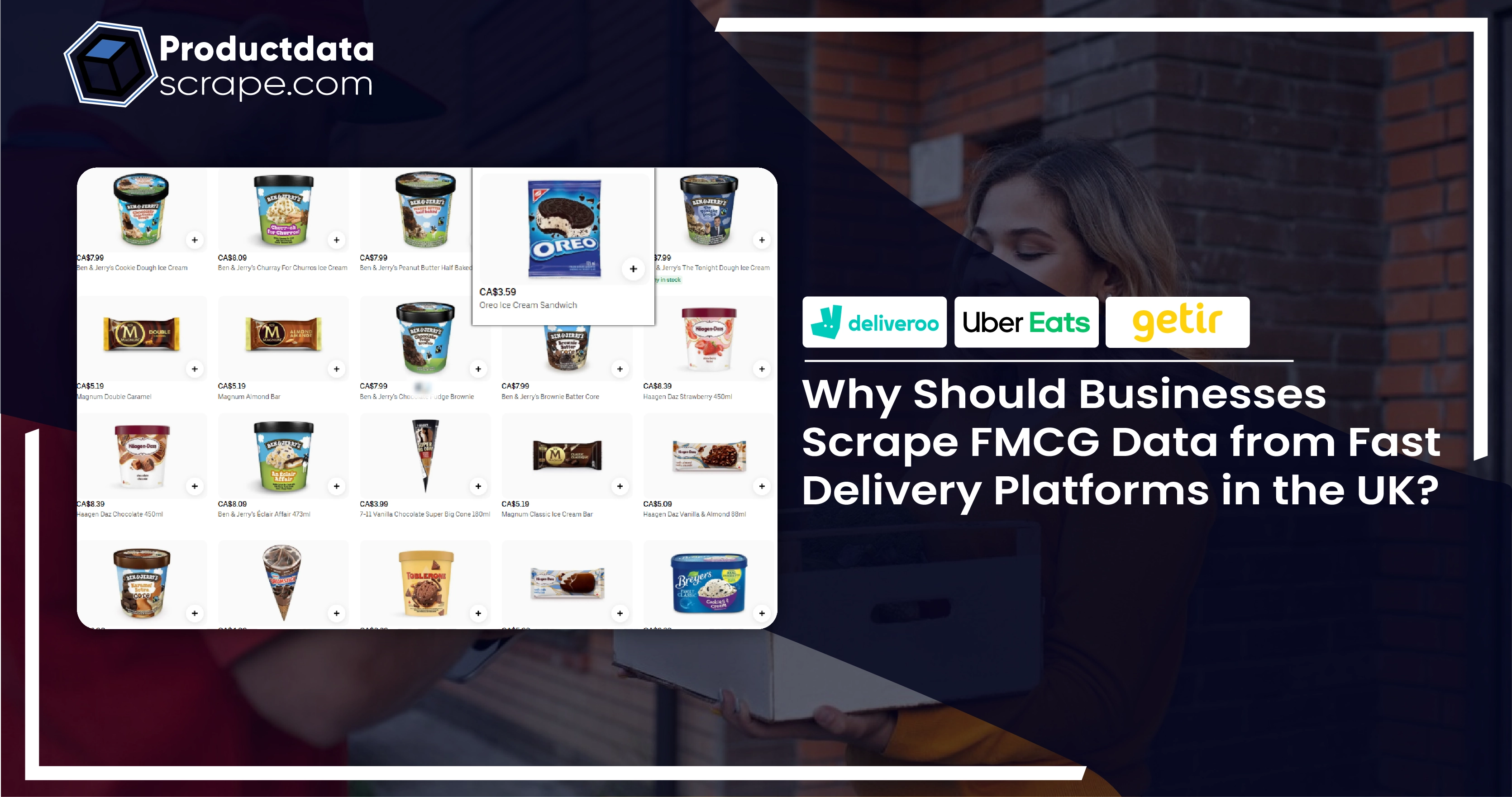
Introduction
The fast-moving consumer goods (FMCG) sector is highly competitive and dynamic, with the
UK emerging as a hub for innovation and growth. The rise of fast delivery platforms like
Deliveroo, Uber Eats, Gorillas, and Getir has revolutionized consumer access to everyday
essentials. To maximize the opportunities these platforms present, businesses must adopt data-
driven strategies.
Scrape FMCG Data from Fast Delivery Platforms in the UK to gain actionable insights into
pricing trends, product availability, and promotional strategies. FMCG Data Feed Extraction
from UK Quick Commerce platforms empowers brands, retailers, and analysts to stay ahead of
evolving consumer demands. By leveraging scraped data, companies can optimize pricing,
inventory, and marketing campaigns while also effectively benchmarking competitors. In a
rapidly changing market, extracting and analyzing FMCG data from these platforms has become
essential for maintaining a competitive edge and delivering value to modern consumers.
The Role of FMCG Data in the Quick Commerce Ecosystem
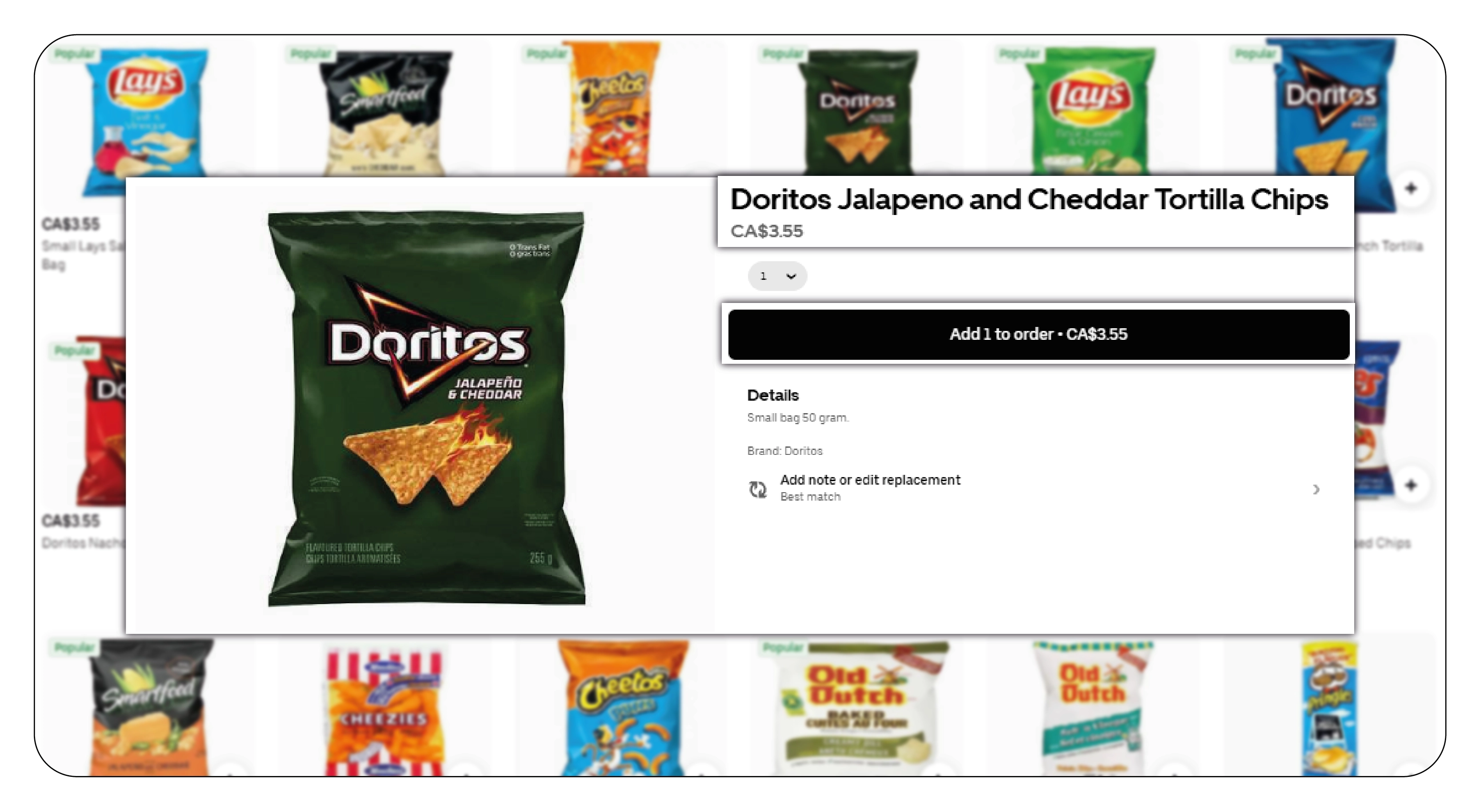
Quick commerce platforms are reshaping how consumers purchase everyday items, including
FMCG products like snacks, beverages, toiletries, and household essentials. These platforms
promise swift delivery, often within minutes, making them the go-to choice for convenience-
driven customers. For FMCG companies, this shift presents both opportunities and challenges.
By scraping FMCG data from quick commerce platforms, businesses can access crucial insights,
including:
- Real-time Pricing Trends: Staying competitive in FMCG requires constant vigilance over pricing strategies. Extract FMCG Prices and Data from UK Quick Commerce Sites to monitor price fluctuations across Deliveroo, Uber Eats, and Getir platforms. This provides invaluable insights into market dynamics and enables the formulation of responsive pricing models. Such Grocery Pricing Data Intelligence ensures that brands remain attractive to price-sensitive consumers without compromising profit margins.
- Product Availability: Understanding inventory trends is critical for meeting consumer demand. Through Quick Commerce FMCG Product Data Scraping in the UK, businesses can track product availability in real-time, identifying which items are consistently in stock or frequently out of stock. This data highlights consumer preferences and helps optimize inventory planning, ensuring popular products are always available on shelves or delivery platforms.
- Promotional Analysis: Discounts and promotions are pivotal in driving FMCG sales. Using Web Scraping Grocery Delivery Data, businesses can analyze promotional patterns across quick commerce sites, uncovering which campaigns resonate most with consumers. This insight is essential for designing successful marketing initiatives that align with seasonal trends or competitor strategies.
- Consumer Behavior: Identifying trending products and understanding purchase patterns provides a strategic advantage. With Supermarket Data Scraping Services, companies can delve into customer preferences, uncovering what drives purchases. This data supports the development of targeted marketing campaigns, personalized recommendations, and improved customer experiences.
- Competitor Benchmarking: Analyzing competitor performance is crucial in a fast-paced FMCG landscape. By employing Web Scraping Grocery & Gourmet Food Data, businesses can gain visibility into competitors' pricing, product listings, and promotional efforts. This data allows brands to identify gaps in their offerings and refine their strategies, ensuring a robust market position.
Benefits of Scraping FMCG Data from Quick Commerce Platforms
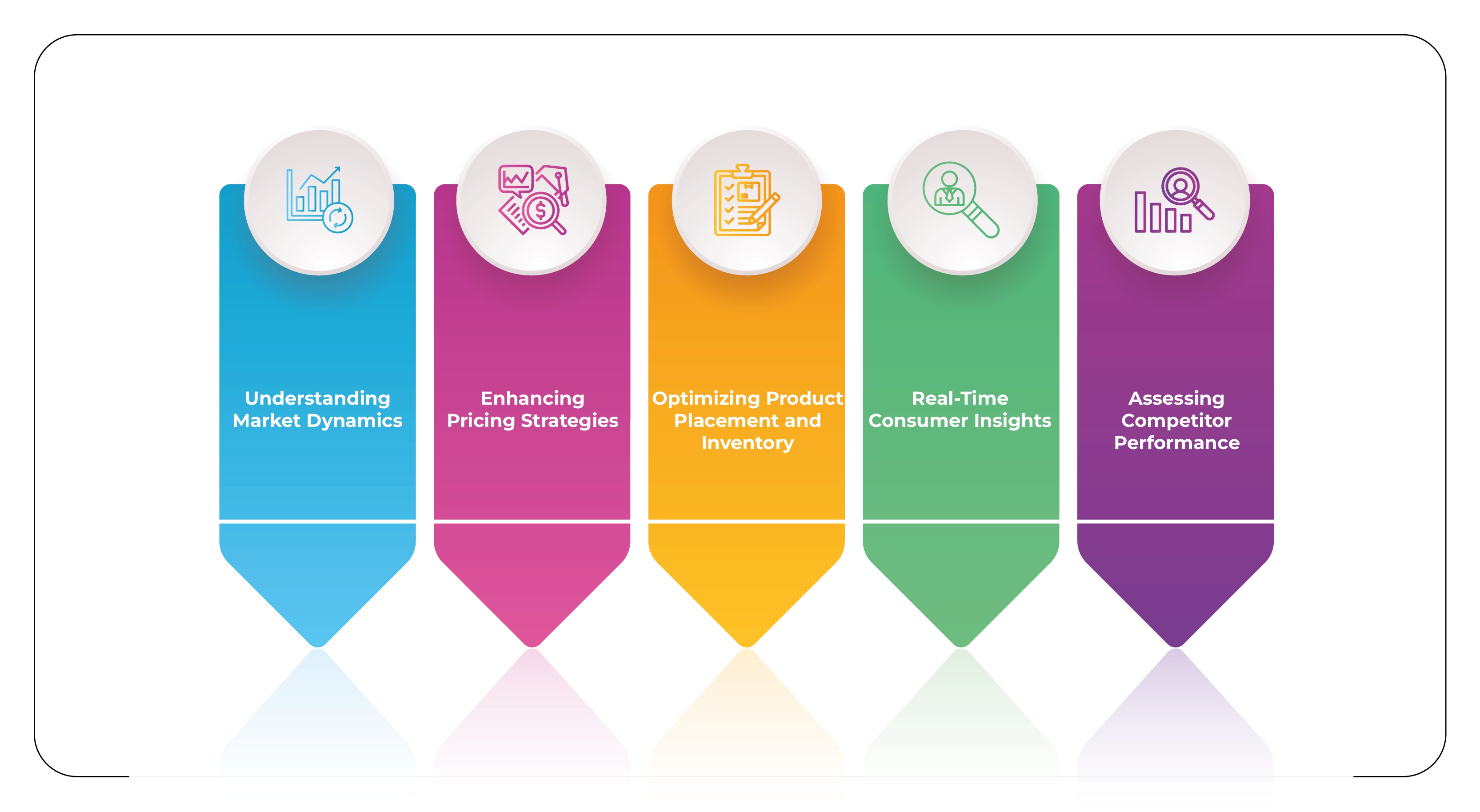
Scraping FMCG data from quick commerce platforms offers businesses valuable insights into
pricing trends, consumer behavior, product availability, and competitor strategies. This data-
driven approach empowers brands to optimize marketing, enhance inventory management,
and stay competitive in the dynamic FMCG market.
Understanding Market Dynamics: Consumer behavior, seasonal trends, and promotional strategies shape the UK's FMCG market. Leveraging Web Scraping Quick Commerce Data from platforms like Deliveroo and Getir enables businesses to decode these dynamics effectively. Companies can identify gaps and introduce new products to meet unmet consumer demands by analyzing product availability and sales trends.
Enhancing Pricing Strategies: Pricing is crucial in consumer decision-making, especially in the FMCG sector, where margins are often tight. Using Grocery Pricing Data Intelligence, brands can scrape pricing information from multiple platforms to maintain competitive pricing while maximizing profitability. Additionally, insights into competitors' pricing strategies allow for the creation of dynamic pricing models tailored to market conditions.
Optimizing Product Placement and Inventory: Understanding which products are frequently purchased on quick commerce platforms helps guide inventory management and product placement decisions. For instance, brands can adjust inventory and promotions accordingly if snacks and beverages experience high demand during specific hours. Extract Grocery & Gourmet Food Data to align offerings with consumer habits for maximum impact.
Real-Time Consumer Insights: Scraping data delivers real-time insights into consumer preferences, such as trending products and the effects of promotions on purchase decisions. This information, available using Grocery & Supermarket Data Scraping Services, is invaluable for tailoring marketing campaigns and improving customer satisfaction by aligning with consumer expectations.
Assessing Competitor Performance: Analyzing competitors' product listings, ratings, and reviews provides insights into their strengths and weaknesses. Using eCommerce Dataset Scraping, brands can gain valuable data to differentiate themselves, refine their offerings, and outperform competitors in the highly competitive FMCG market.
Applications of FMCG Data Scraping in the UK
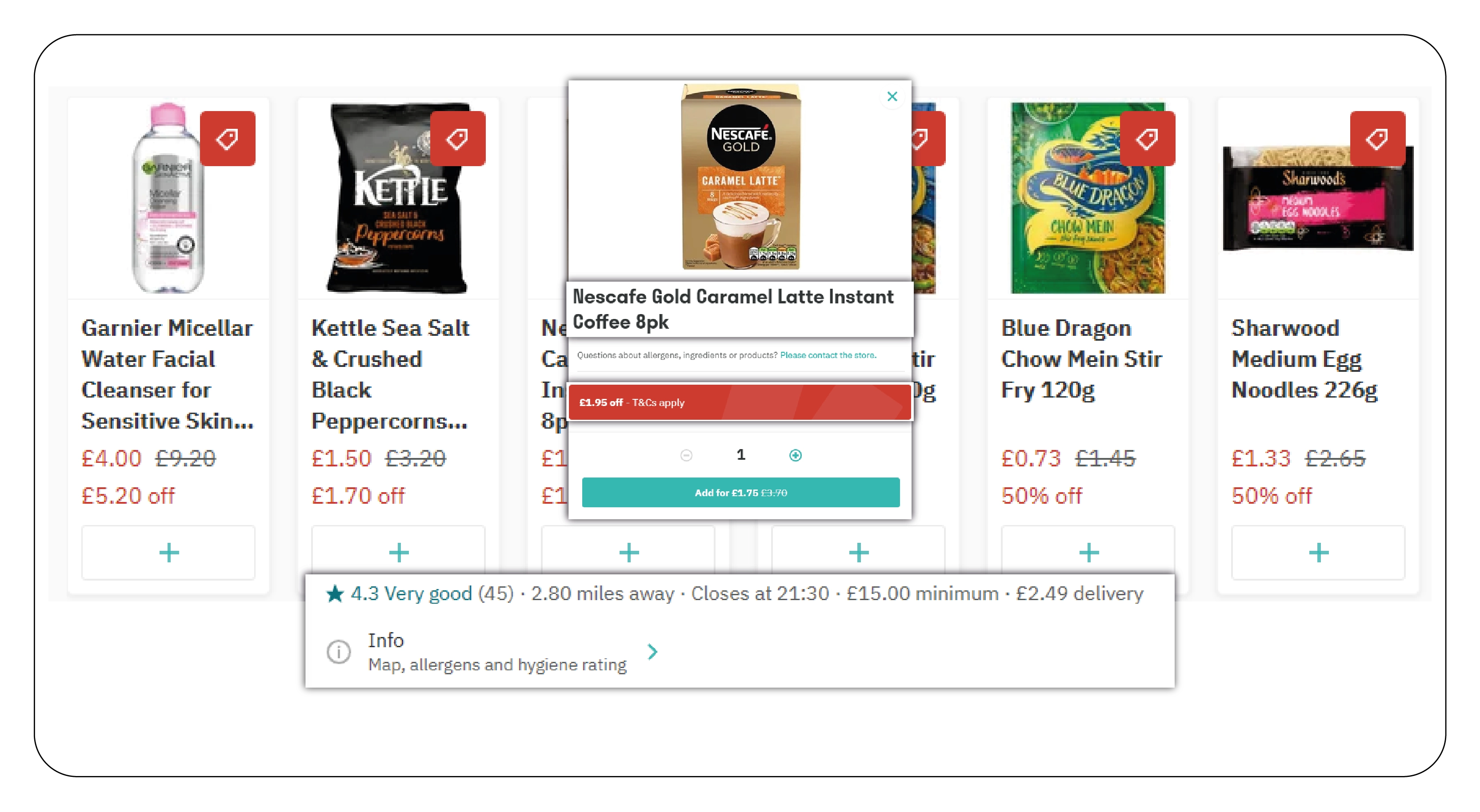
FMCG data scraping in the UK empowers businesses with actionable insights into pricing,
product availability, and consumer preferences. Applications include optimizing inventory,
refining marketing strategies, analyzing competitor performance, and adapting to market
trends for sustained competitive advantage.
Product Development and Launches: Brands can identify gaps in the market by analyzing product categories that are either underrepresented or in high demand. For example, if data reveals an increasing preference for plant-based snacks or organic household products, brands can align their product development strategies accordingly.
Supply Chain Optimization: Data on product availability and demand can help streamline the supply chain. FMCG companies can use these insights to optimize logistics, reduce wastage, and ensure timely stock replenishment on quick commerce platforms.
Marketing and Advertising Campaigns: Promotions and discounts significantly drive sales on quick commerce platforms. Scraping data on promotional activities can provide insights into which campaigns resonate with consumers, enabling brands to craft more effective marketing strategies.
Regional and Demographic Insights: The UK is a diverse market with varying regional preferences. Businesses can gain region-specific insights by analyzing FMCG data from quick commerce platforms, allowing them to tailor their offerings and promotions to different demographics.
Competitor Benchmarking and Positioning: FMCG brands can benchmark their performance against competitors by analyzing pricing, promotions, and customer reviews. This information can guide strategic decisions to enhance market positioning.
Challenges in Scraping FMCG Data from Quick Commerce Platforms
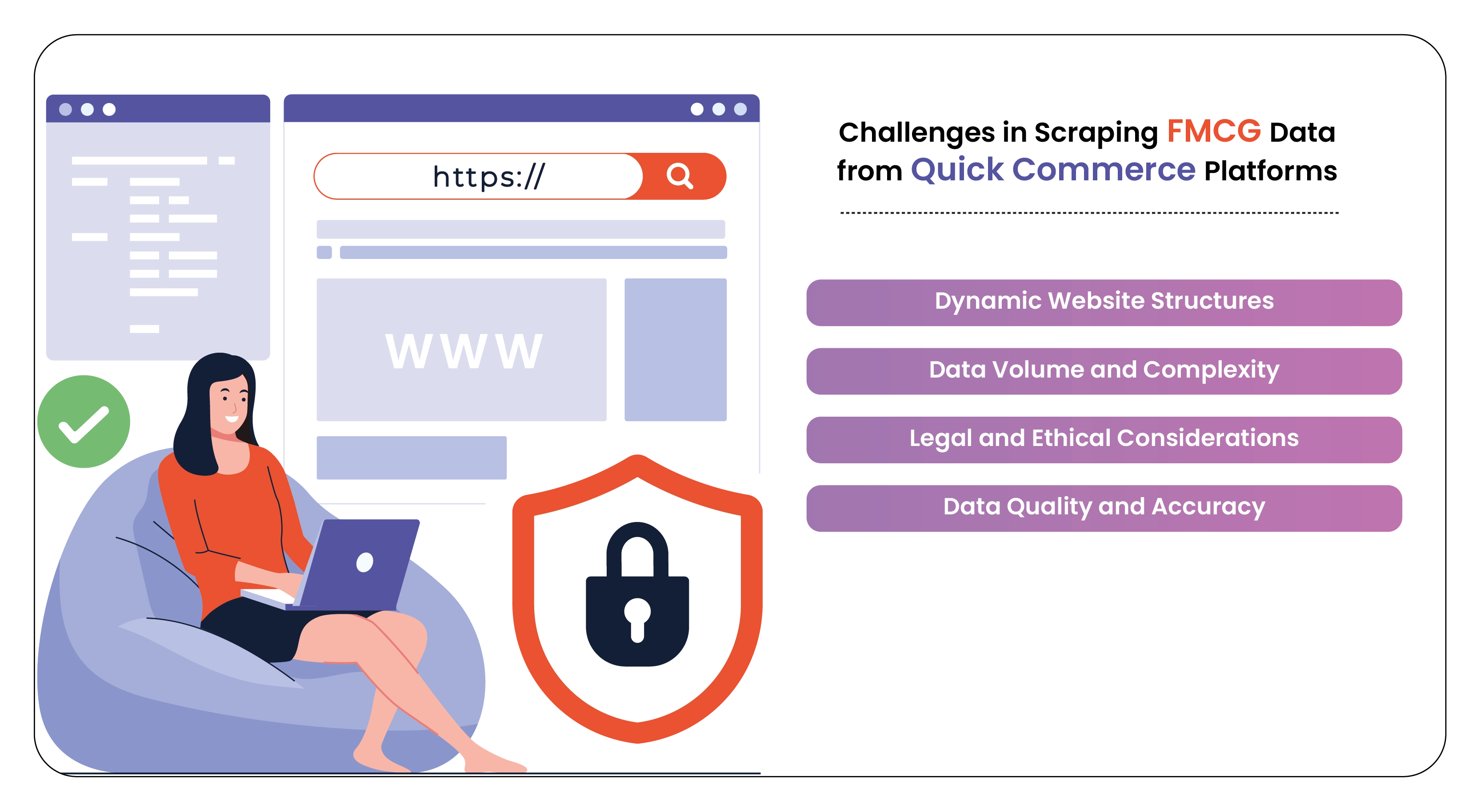
Despite its numerous benefits, scraping FMCG data from quick commerce platforms comes with
challenges:
Dynamic Website Structures: Quick commerce platforms frequently update their website structures, making it difficult to maintain consistent data extraction. Businesses must invest in adaptable scraping tools or services to handle such changes.
Data Volume and Complexity: The vast amount of data available on these platforms can be overwhelming. Efficient data processing and storage solutions are essential to derive actionable insights.
Legal and Ethical Considerations: Scraping data must comply with legal and ethical guidelines, such as the platform's terms of service and data protection regulations like the UK's GDPR. Ensuring compliance is critical to avoiding legal repercussions.
Data Quality and Accuracy: The accuracy of scraped data is crucial for informed decision-making. Regular monitoring and validation processes are necessary to ensure data quality.
Best Practices for Scraping FMCG Data
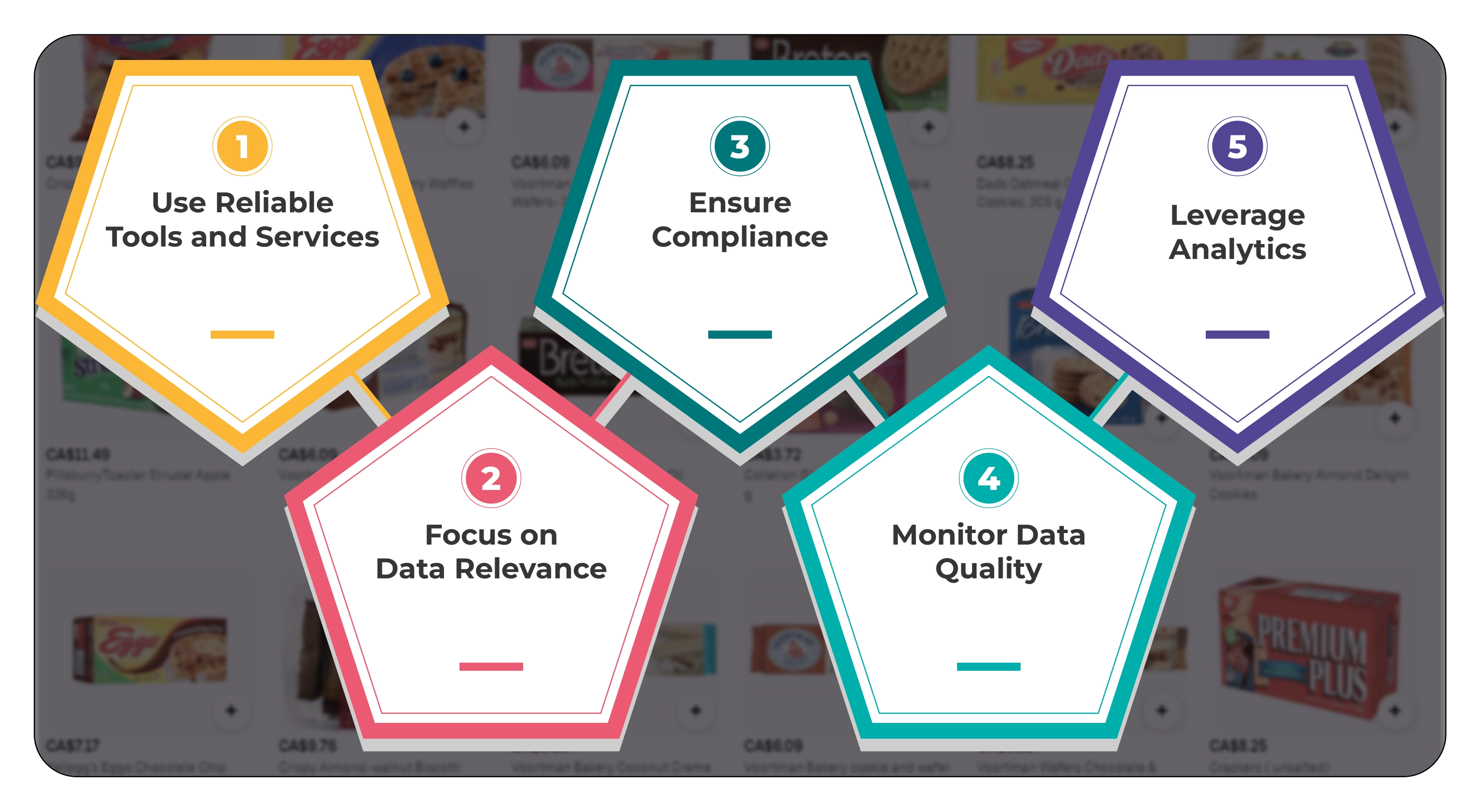
Discover practices for scraping FMCG data to ensure accuracy, compliance, and
actionable insights for business growth.
1. Use Reliable Tools and Services
Investing in robust data scraping tools or partnering with experienced providers can help overcome technical challenges and ensure consistent data extraction.
2. Focus on Data Relevance
Prioritize data points that align with business objectives, such as pricing, availability, and consumer preferences. Avoid collecting unnecessary data that may lead to inefficiencies.
3. Ensure Compliance
Adhering to legal guidelines and platform-specific terms of service is essential. Work with legal experts to establish a compliant data scraping strategy.
4. Monitor Data Quality
Implement regular quality checks to ensure the accuracy and reliability of scraped data. Automated validation processes can help identify and rectify errors promptly.
5. Leverage Analytics
Raw data alone is insufficient; businesses must use analytics tools to extract meaningful insights. Machine learning and AI-driven analytics can further enhance the value of scraped data.
The Future of FMCG Data Scraping in the UK

As quick commerce continues to gain traction, the demand for FMCG data scraping is set to grow. Emerging technologies like AI and machine learning will enhance data extraction and analysis capabilities.
Additionally, as platforms adopt advanced features like personalized recommendations and dynamic pricing, businesses must refine their scraping strategies to stay ahead. The integration of real-time analytics and predictive modeling will further enhance decision-making processes.
Conclusion
Scraping FMCG data from quick commerce platforms in the UK is more than just a technological advantage—it is a strategic necessity. The insights from this data enable businesses to understand market trends, optimize operations, and deliver value to consumers. By addressing the challenges and adopting best practices, brands can unlock the full potential of quick commerce platforms and thrive in the competitive FMCG landscape.
For FMCG companies in the UK, the time to embrace data-driven strategies is now. Quick commerce is not just a trend; it is the future of retail, and data scraping is the key to confidently navigating this exciting landscape.
At Product Data Scrape, we strongly emphasize ethical practices across all our services, including Competitor Price Monitoring and Mobile App Data Scraping. Our commitment to transparency and integrity is at the heart of everything we do. With a global presence and a focus on personalized solutions, we aim to exceed client expectations and drive success in data analytics. Our dedication to ethical principles ensures that our operations are both responsible and effective.







































.webp)






